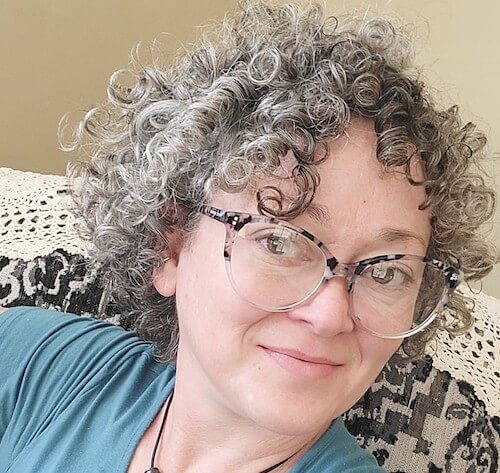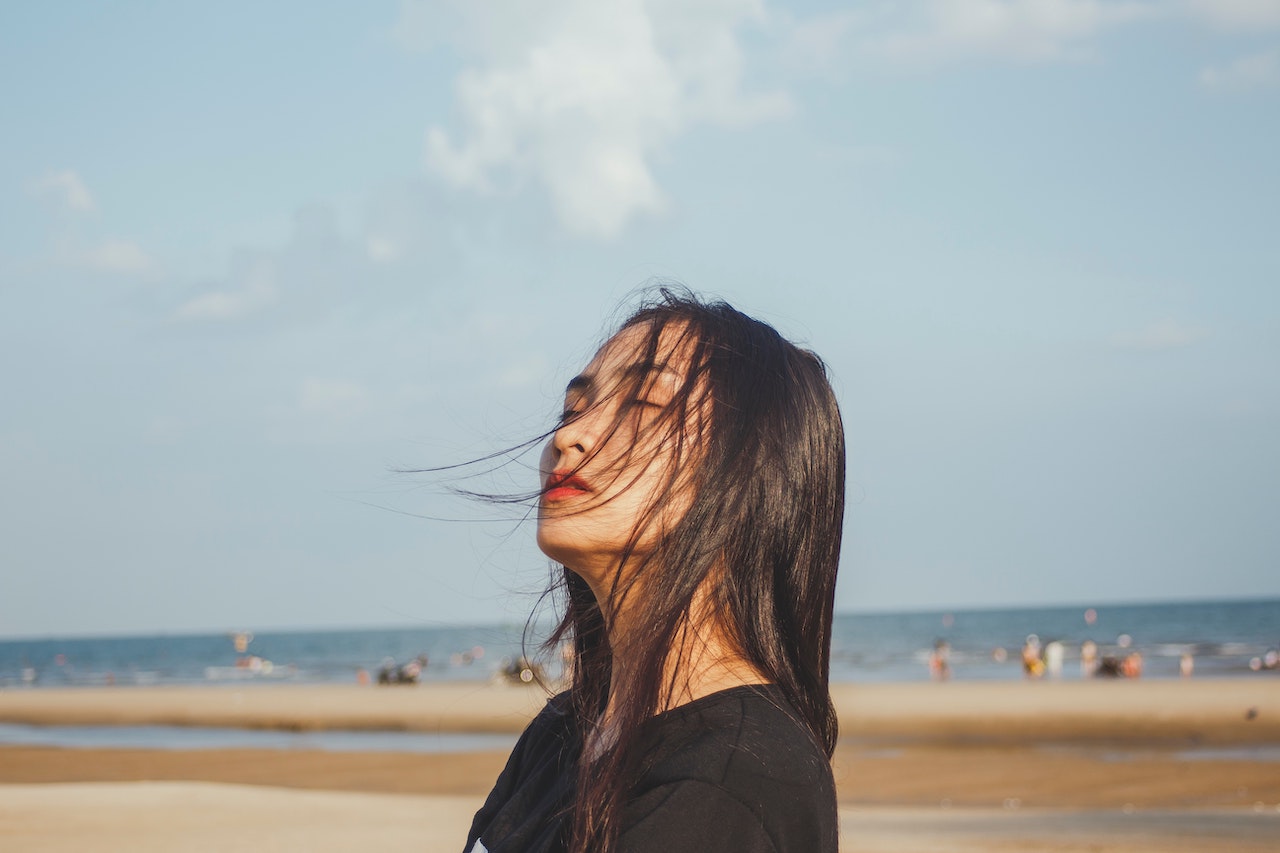An itchy scalp is common and can be attributed to a variety of causes. It can be something as simple as not thoroughly rinsing the shampoo out of your hair to something more serious that requires medical attention.
VEGAMOUR spoke with an expert about what might cause itchy scalp conditions. Also, find out what products you should use to create a healthy scalp environment.
#include-related-slider#
Causes of an Itchy Scalp
Most causes of scalp itchiness have to do with bacteria or some type of scalp buildup. However, there are a number of reasons your scalp could be irritated.
Some of the common skin conditions of an itchy scalp include:
- Buildup of dead skin cells
- Dryness or irritation
- Fungal infections, such as scalp ringworm
- Dry scalp or weather changes, like the dry air in winter months
- Contact dermatitis (allergic reactions to ingredients in hair dye or products)
- Excessive natural oils
- Scalp psoriasis
- Flaky scalp or dandruff
- Head lice
- Nerve problems
- Symptom of autoimmune disease
- Seborrheic dermatitis
If you notice your scalp is itchy right after you shampoo it, the symptoms could be directly related to your shampooing or conditioning habits.
Shop: Scalp & Dandruff Best-Sellers
Itchy Scalp Advice from an Expert
VEGAMOUR spoke with Anna Chacon, a dermatologist at MyPsorasisTeam, about how an itchy scalp can relate to shampooing habits.
Chacon said that people with itchy scalps might not be thoroughly washing out all the hair products they use, such as shampoo, conditioner, oils or waxes. "This can lead to an itchy scalp because of the changes in pH these products cause the scalp and hair shafts and follicles, leaving them prone to dryness [and] flakiness," said Chacon.
It could also be that your itchy scalp is caused by a lack of conditioner. "On the other hand, not applying adequate product thoroughly after the wash (leave-in conditioner/oils) can also cause an itchy scalp because a pH balance is not being restored," Chacon said.
Also: How Often Should You Really Be Washing Your Hair?
Shampoo Ingredients That Can Cause Irritation
Although how you shampoo and condition your hair has a huge impact on the comfort of your scalp, what you put on your hair is also important. If you've determined that you are rinsing your hair and scalp thoroughly and you're using an adequate amount of conditioner, the next step is to assess whether the ingredients in your hair care products might be causing irritation to your scalp.
Set aside a weekend or so to only use your regular shampoo and conditioner. Do not put any type of styling aids on your hair. If this solves the problem, then it's possible that the ingredients in your styling mousse or gel could be causing your scalp to itch.
For best results, opt for products that do not contain these common irritants:
- Phthalates
- Sulfates
- Silicones
- Parabens
- Formaldehyde
Related: Sulfate-Free Shampoos and Conditioners
Shampooing Frequency
Sometimes, it's hard to tell if you are washing your hair too much or not enough. If you overshampoo your hair, it can make your scalp dry and itchy. If you shampoo too infrequently, it can lead to scalp buildup, which can also make your scalp itchy.
How frequently should you shampoo? While most of us shampoo and condition as part of our showering routine, you should only shampoo and condition your hair when it becomes soiled. Finer, thinner heads of hair may need more frequent shampooing because the oily sebum can travel more easily down the hair shaft.
Similarly, hair that is very curly or dense may require less frequent shampooing because the scalp oils do not travel down the hair.
To address the needs of your specific hair texture and type, consider using a "smart" shampoo and conditioner that instantly adjusts to the hair on contact, providing ideal amounts of volume moisture and protection.
Other Tips for Treating an Itchy Scalp
Aside from mindful shampooing and conditioning, here are some other actions you can take to help balance your scalp.
Use a Scalp Serum Regularly
For best results, use a detoxifying serum, which can help gently clarify the scalp while delivering helpful nutrients to create a healthy scalp biome that will be comfortable and itch-free.
See: Get to Know VEGAMOUR's Best-Selling Scalp Products
Use a Dry Shampoo
Also, use a cruelty-free dry shampoo to gently absorb oil, perspiration and odors on the scalp and hair between shampoos. Occasionally skipping a shampoo treatment in favor of scalp-balancing dry shampoo might help improve a dry scalp condition.
Don't Scratch or Pick
Scratching at or picking at your scalp can compound itchy scalp issues. This can cause abrasions which create open places on the skin where bacteria can thrive. Also, picking at the scalp could lead to scabbing, scarring and possibly even some hair loss.
Read: A Beauty Editor's Travel Wellness Routine With VEGAMOUR
Homeopathic Treatments
Some essential oils may be able to relieve the itching you are experiencing on your scalp. However, it's important to dilute two to three drops of your preferred essential oils into a carrier oil, such as coconut oil, marula oil or olive oil. Here are some of the essential oils you might want to use to make a homemade scalp oil treatment:
- Tea tree oil
- Essential oil of rosemary
- Essential oil of lemongrass
Medical Care
If your itchy scalp persists, a doctor or dermatologist to rule out conditions like scalp psoriasis or head lice. He or she can also determine if your issue is an allergic reaction to a hair product you use.
To treat your itchy scalp, a doctor might prescribe a medicated shampoo with an active ingredient that is anti-inflammatory and relieves the itch. Oral antibiotics might also be prescribed if there are reddish patches; raised or inflamed, itchy patches; or pustules.
Also: Scalp Psoriasis vs. Dandruff — What's the Difference?
Banish Itchy Scalp Woes With Proper Care
An itchy scalp problem that shows up quickly after you shampoo your hair is likely not a serious concern but certainly a bothersome one. Try a few of the tips in this article and if you are not finding relief, see a doctor for further assessment.
Excellent scalp care begins with analyzing your hair care habits and also what goes on your scalp. Using gentle, clinically proven, plant-based scalp wellness products might solve a lot of your issues by helping create optimal scalp conditions, which, in turn, can encourage thicker, fuller, healthier hair.
#include-related-slider#
More From VEGAMOUR
- Shop: Clean Hair Products
- Help! I Have a Smelly Scalp — What Can I Do?
- How to Cleanse Your Scalp in 6 Steps
- A Guide to VEGAMOUR's Shampoos and Conditioners
Photo credit: Maria Korneeva/iStock




















